The benefits of attendance at Forest School
It has to be said that there’s comfort in knowing where your children are, lowering the chance they’ll be run over or kidnapped. It could be said that keeping them tucked up, by knowing where they are and what they’re doing, lowers parental anxiety levels.
The result is a generation of children who are spending a high proportion of their time indoors, sitting in front of a screen no doubt for much of their free time, passive recipients of content that’s been dubbed “chewing gum for the brain”.
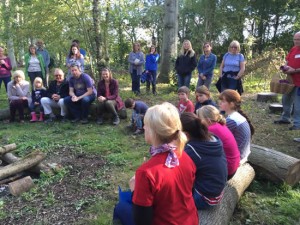 Other parents, who are determined their children will not become screen slaves, develop time-tables of outings and activities and become managers of their children’s time, rather than letting them out to play alone.
Other parents, who are determined their children will not become screen slaves, develop time-tables of outings and activities and become managers of their children’s time, rather than letting them out to play alone.
A generation of cotton wool kids
It’s understandable, in our risk-averse parental society, to shield children from sources of potential harm, but it doesn’t encourage independence. Lowering the risk to children’ safety through keeping them ‘within sight’ isn’t just a bad idea for parents, but for the children too.
Growing up in a cotton-wool environment doesn’t develop a child’s skills that are important for success in adult life, those associated with management of physical, social and emotional risks. These skills used to be learned when children played ‘out’ with their peers, through the rough and tumble of free play, away from parental eyes.
Risk management needs to be learned in childhood
What parents these days don’t seem to take on board is that once a child is of an age to act independently of them, they will resist and resent further parental influence and interference in their decision-making.
If their children haven’t learned valuable childhood lessons about the taking or and management of risk, the potential for negative rather than positive outcome is heightened because they lack life experience to make balanced judgements.
Forest School benefits
The benefits of attendance at Forest School is firstly that it takes place outdoors, which has benefits to well-being in its own right. Secondly, the children are encouraged to engage in social situations that involve individual creative thinking and group problem-solving activities .
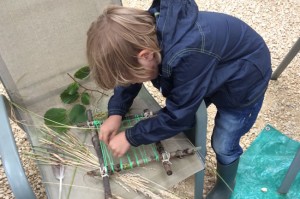 My experience of taking part in Forest School activities, as a volunteer, demonstrated clearly to me how valuable it is for children to be allowed and even encouraged to take risks and learned how to manage them. Lessons learned in childhood benefit their lives as adults.
My experience of taking part in Forest School activities, as a volunteer, demonstrated clearly to me how valuable it is for children to be allowed and even encouraged to take risks and learned how to manage them. Lessons learned in childhood benefit their lives as adults.
At Forest School, children are given opportunities for free play away from interference by adults, although within agreed boundaries. As a result the children relax and learn about risk-management through just ‘doing’, building their sense of self-worth, self-control, and self-esteem through interaction with each other and the woodland environment.
My memories of learning about risk management
I remember as a child having great fun “making clay” putting mud through an old mangle, which these days would be a non-event due to the risk assessments involved! I’m sure we all have such memories?
The point is, that even though there were associated risks, as a child I was completely absorbed in the play and learned to manage the associated risks all by myself. The other delightful aspect I remember is that the experience of being absorbed in this free play experience meant that the worries and anxieties I had as a child, were driven away to be replaced by an inner calmness associated with just enjoying the moment,
The benefits of play in a natural woodland environment
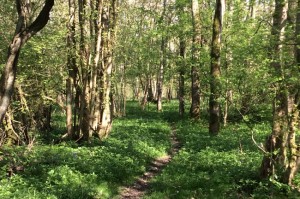 Oxlip Wood Forest School, being set in a wood, is a wonderfully rich environment providing endless opportunities for play, self-expression and creativity through simply being given the opportunity to use the resources at hand.
Oxlip Wood Forest School, being set in a wood, is a wonderfully rich environment providing endless opportunities for play, self-expression and creativity through simply being given the opportunity to use the resources at hand.
Learning at Forest School is far from the traditional classroom approach where the children sits passively and take in information and guidance delivered by a teacher. Forest School is essentially learner-led rather than teacher-led, encouraging self learning through experimentation and interaction with others. Attendance at Forest School builds self-esteem, helps fuel the imagination and also develops resourcefulness and resilience.
My own experience of attending Forest School
My first involvement with Forest School was as a volunteer. Taking part in the sessions and observing what went on was a more fascinating experience than I had expected. The most rewarding part was to observe how, when the children were first introduced to an activity, they demonstrated a level of enthusiasm to develop their own ideas and interpretations (even the slightly older more sceptical ones). What was particularly obvious was them revelling in the Forest School model of non-interference from adults, being given to do it ‘their way’.
Despite the considerable safety protocols that are part of Forest School, the children were happy to accept ‘procedure rules’ associated with their chosen activity. Demonstrating awareness of the rules meant they’d internalised how to manage the risks associated with their chosen activity. The result was a group of children who, having accepted the need and value for boundaries, were happy and relaxed.
My Forest School story
Finally, I’m going to share an anecdote from my experience of Forest School.
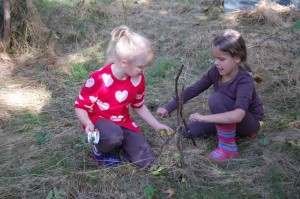 At a recent Forest School taster session event, I noticed a child and adult who whilst waiting for forest school to begin. The lad, I later learned was about 12, was leaning against his mum (as they do) was complaining about how tired and bored he was. His mother was pacifying her baby bird saying “we won’t be long and you’ll have to have an early night tonight”. However, things were to change.
At a recent Forest School taster session event, I noticed a child and adult who whilst waiting for forest school to begin. The lad, I later learned was about 12, was leaning against his mum (as they do) was complaining about how tired and bored he was. His mother was pacifying her baby bird saying “we won’t be long and you’ll have to have an early night tonight”. However, things were to change.
By the time the hour-long taster session reached the point where the children had free play time to build mini-beast houses, I absorbed the boy becoming fully engrossed, finding all sorts of materials to use, such as a U-shaped stick for a door way, moss for bedding etc.
I observed the boy working with a much younger girl, who I assumed to be his sister as they were so comfortable and natural in one another’s company. However, my presumption was wrong and the boy told me he’d only just met the girl and that his own sister was much older than himself and didn’t play with him much.
What I was taken aback by was how the boy was demonstrating kind, considerate behaviour towards the much younger girl as they developed their mini-beast house together. At the end of the session there was no more leaning on Mum, rather standing independently, with expression of no longer feeling tired and “when could they come again to Forest School”.
Forest School is not just a label for children being involved in free-play outdoors. Forest School is a process that encourages learning for life.

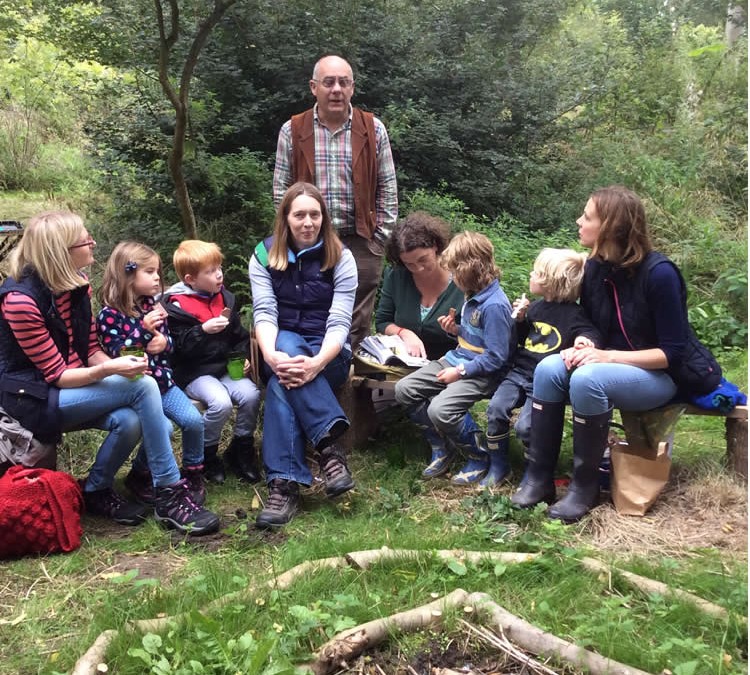
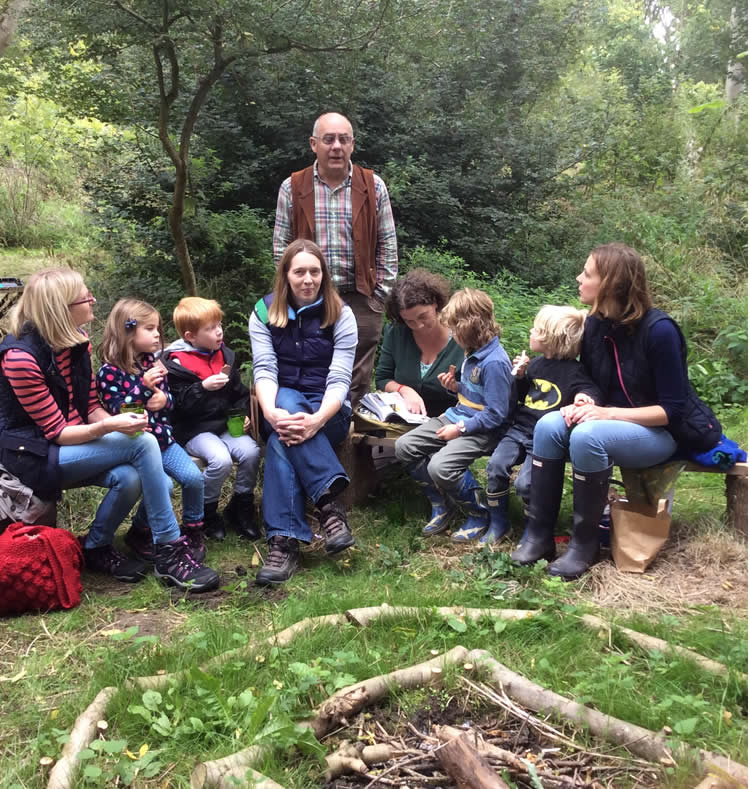

Recent Comments